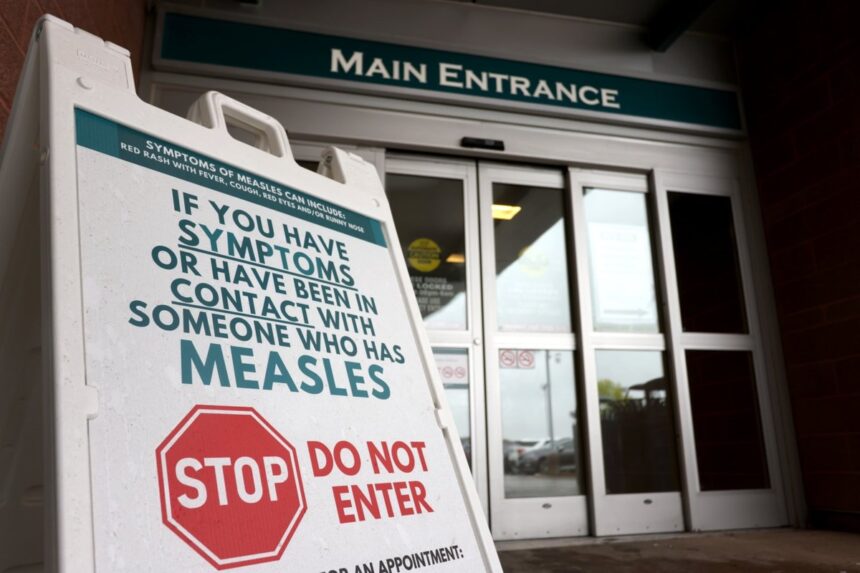In a troubling development that has raised alarm among public health officials, Canada now leads North America in measles cases, according to a recent assessment by the Pan American Health Organization (PAHO). With 28 confirmed cases already recorded this year, the country faces its most significant measles challenge in recent memory, highlighting growing concerns about vaccination rates and public health preparedness.
The surge comes amid a broader regional uptick, with PAHO reporting 59 confirmed cases across the Americas in the first two months of 2024 alone. “What we’re witnessing is not just a Canadian issue, but part of a concerning continental trend,” explains Dr. Carissa Etienne, PAHO Director. “However, Canada’s numbers are particularly worrying given the country’s historically strong immunization programs.”
Health authorities attribute this spike to a complex interplay of factors. Vaccination hesitancy, exacerbated during the COVID-19 pandemic, has left pockets of vulnerability across the country. Additionally, increased international travel following pandemic restrictions has facilitated virus transmission across borders.
“We’re seeing the consequences of disrupted childhood vaccination schedules,” notes Dr. Howard Njoo, Canada’s Deputy Chief Public Health Officer. “During the pandemic, routine immunizations were delayed or missed entirely for many children, creating immunity gaps that the measles virus is now exploiting.”
Provincial health departments have responded with urgency, particularly in Ontario and Quebec where the majority of cases have been identified. British Columbia’s health authorities have also heightened surveillance following several confirmed infections in the Vancouver area.
The measles virus, known for its high contagiousness, can spread rapidly through respiratory droplets and remains active in the air for up to two hours. What makes this outbreak particularly concerning is that an infected person can transmit the virus four days before developing the telltale rash, complicating containment efforts.
“Unlike some infections where symptoms and contagiousness coincide, measles presents a unique challenge because transmission occurs before clinical recognition,” explains infectious disease specialist Dr. Anna Banerji from the University of Toronto. “This makes contact tracing extremely difficult and underscores why high vaccination rates are our best defense.”
Public health officials are urging Canadians to ensure their measles-mumps-rubella (MMR) vaccination status is up to date. The standard recommendation includes two doses, typically administered during childhood, which provides approximately 97% protection against the disease.
The economic implications extend beyond healthcare costs. A comprehensive study published in the Canadian Medical Association Journal estimated that each measles case costs the healthcare system approximately $10,000 in direct medical expenses, with additional indirect costs to families and communities.
Federal health minister Mark Holland emphasized the government’s commitment to addressing the situation: “We’re working closely with provincial and territorial partners to strengthen our response and boost vaccination rates. This includes targeted outreach to communities with lower immunization coverage and ensuring vaccine accessibility across the country.”
Health experts warn that without decisive action, Canada could face a prolonged outbreak that may spread to vulnerable populations, including infants too young for vaccination, immunocompromised individuals, and those with medical contraindications to vaccines.
As we navigate this public health challenge, Canadians must consider a critical question: How do we balance personal health decisions with our collective responsibility to protect community immunity, especially for those who cannot protect themselves through vaccination?





















